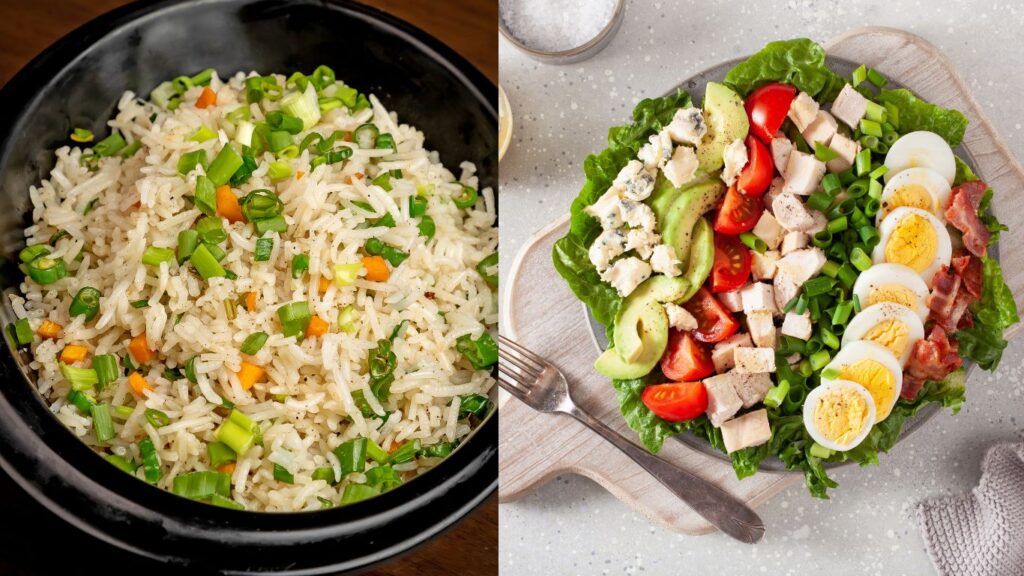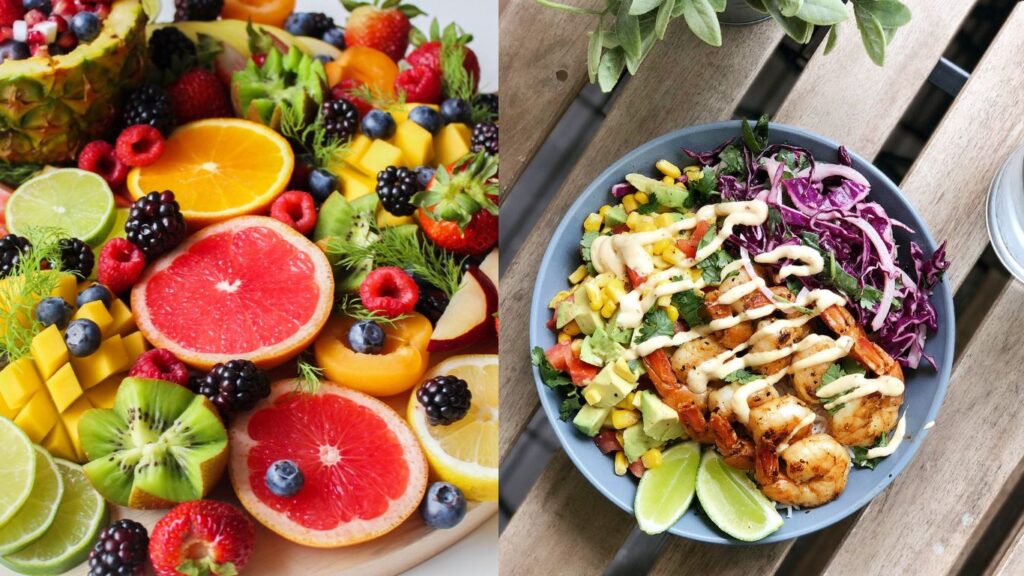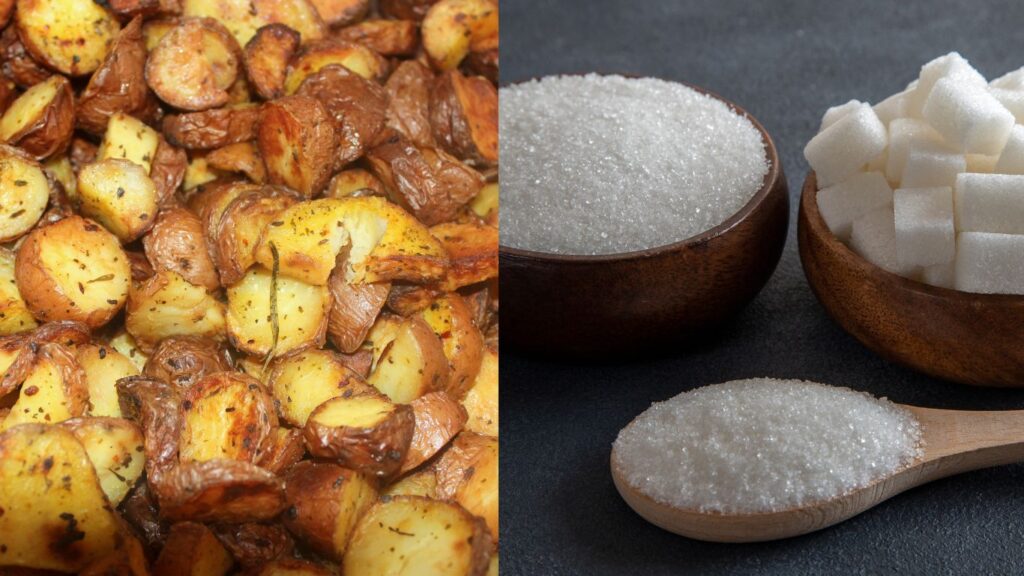Many of us experience digestive discomfort, including gas, bloating, and acidity, without fully understanding the root cause. Surprisingly, these issues can often be traced back to the way we combine foods. Not all foods work well together, and some combinations can slow down digestion, leading to uncomfortable symptoms. In this blog, we’ll explore how different food combinations affect digestion and why some pairings are more likely to cause gas and acidity.
How Food Combinations Affect Digestion and Lead to Gas and Acidity
- Understanding Digestion and Food Combinations
- 1. Proteins and Carbohydrates: A Common Culprit
- 2. Fruit with Meals: Sweet but Problematic
- 3. Dairy and Protein-Rich Foods: Heavy on the Stomach
- 4. Starch and Sugar: A Recipe for Fermentation
- 5. Mixing Multiple Protein Sources: Too Much to Digest
- How to Improve Digestion by Optimizing Food Combinations
- Conclusion
Understanding Digestion and Food Combinations
Before diving into specific combinations, it’s essential to understand how digestion works. Different food groups—proteins, carbohydrates, fats, and fiber—require different enzymes, pH levels, and time frames to be broken down in the digestive tract. For instance:
- Proteins are typically broken down in the acidic environment of the stomach.
- Carbohydrates begin to digest in the mouth with saliva and need a more alkaline environment in the stomach and intestines.
- Fats slow down the digestive process overall and are broken down in the small intestine.
When foods that digest at different speeds or need different pH levels are consumed together, it can lead to slowed digestion and fermentation in the gut, resulting in gas, bloating, and acidity.
1. Proteins and Carbohydrates: A Common Culprit
One of the most common problematic food combinations is proteins and carbohydrates. Think of meals like burgers (meat and bread), pasta with meat sauce, or rice and beans. While delicious, these pairings are more challenging for the digestive system.

- Why It Causes Issues: Proteins require an acidic environment to digest properly, while carbohydrates need a more alkaline setting. When eaten together, the body struggles to create an optimal pH balance for both, slowing down digestion.
- Result: The carbohydrates may ferment in the stomach while waiting for the proteins to be digested, leading to gas and bloating. Additionally, the slowed digestion can cause an increase in stomach acid, leading to acidity and discomfort.
Tip: Try separating protein and carb-heavy meals or focus on consuming lean proteins with non-starchy vegetables, which are easier to digest together.
2. Fruit with Meals: Sweet but Problematic
Many people enjoy fruit with their meals, such as fruit in salads or as a dessert. However, fruits digest much faster than proteins and carbohydrates and can cause issues when consumed alongside other foods.

- Why It Causes Issues: Fruits are digested quickly and pass through the stomach faster than most other foods. When eaten with slower-digesting foods, fruits can get “stuck” in the digestive process, leading to fermentation and gas production.
- Result: When fruits ferment, they produce gas, leading to bloating and discomfort. This can also increase acid production as the stomach tries to break down the slower-digesting components of the meal.
Tip: Eat fruits on an empty stomach or between meals to avoid fermentation and ensure they pass through the digestive system smoothly.
3. Dairy and Protein-Rich Foods: Heavy on the Stomach
Combining dairy, like cheese or milk, with protein-rich foods (such as meat, fish, or eggs) is another challenging mix for digestion.

- Why It Causes Issues: Dairy, particularly milk, takes longer to digest, and adding protein-rich foods like meat or eggs can further slow down the process. This results in the stomach having to work harder, producing more acid to break down the food.
- Result: Dairy and protein combinations often lead to bloating, gas, and a feeling of heaviness. They can also trigger acid reflux as the stomach works to digest both types of proteins at once.
Tip: If you consume dairy, try to keep it separate from other protein-rich foods. For instance, enjoy a glass of milk on its own or add it to a smoothie without protein-heavy ingredients.
4. Starch and Sugar: A Recipe for Fermentation
Starchy foods combined with sugar can be tempting—think of pastries, cakes, and sweet bread. However, this combination can be challenging for the digestive system.

- Why It Causes Issues: Starches, like those in bread and potatoes, require longer digestion times, especially if fiber is low. Adding sugar to the mix slows digestion further and increases the likelihood of fermentation.
- Result: This combination often leads to gas and bloating due to fermentation in the intestines. Additionally, it can spike blood sugar levels, potentially leading to an energy crash after digestion.
Tip: If you have a sweet tooth, consider eating sweets separately from meals. Opt for fresh fruits as a dessert instead of sugary, starchy treats.
5. Mixing Multiple Protein Sources: Too Much to Digest
Combining several types of protein in one meal, like meat and beans or chicken with eggs, can strain the digestive system.

- Why It Causes Issues: Different protein sources require different enzymes and take varying amounts of time to break down. When multiple types of proteins are combined, digestion slows down as the body tries to keep up with each protein.
- Result: Sluggish digestion leads to a longer period for food to stay in the stomach, increasing the risk of acid reflux and gas.
Tip: Stick to one protein source per meal to make digestion easier on your stomach and avoid combinations that may lead to discomfort.
How to Improve Digestion by Optimizing Food Combinations
Now that we’ve explored some problematic food combinations, here are a few tips to help improve your digestion and reduce gas and acidity:
- Eat Mindfully and Slowly: Eating too quickly can exacerbate the effects of poor food combinations. Take your time to chew thoroughly and savor each bite, allowing your stomach to start the digestive process more effectively.
- Stay Hydrated, but Avoid Drinking Large Amounts with Meals: While water is essential for digestion, drinking large amounts with meals can dilute stomach acid and hinder the digestive process, leading to gas and bloating.
- Consider a Balanced Diet with Plenty of Fiber: Fiber helps to keep things moving in the digestive system, which can help reduce bloating and gas. Focus on a variety of fruits, vegetables, and whole grains to support digestive health.
- Experiment with Smaller Portions: Eating smaller portions of challenging combinations (e.g., a sandwich with a small piece of cheese) can sometimes ease digestive discomfort.
- Listen to Your Body: Pay attention to how certain combinations make you feel. Your digestive system is unique, so finding what works for you is essential.
Conclusion
The way we combine our foods plays a significant role in how our bodies digest them. By being mindful of common problematic combinations like proteins with carbohydrates, fruits with meals, dairy with proteins, starch with sugar, and multiple protein sources, we can help our digestive systems work more efficiently. Adopting small changes in our eating habits can significantly reduce gas, bloating, and acidity, leading to a more comfortable and enjoyable dining experience.
Digestion is a complex process, but with a little awareness, we can make choices that support our gut health. Remember, if digestive issues persist, it’s always a good idea to consult a healthcare professional to rule out any underlying conditions.
Also read: Top 5 Foods to Naturally Suppress Your Appetite and Manage Cravings
